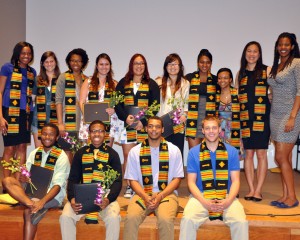Methods Exercise 2: Constructing an Ethnography
“A Year in the Life of Africana Studies at Williams”
Even if I were to research for an entire year, capturing a picture of Africana Studies at Williams would be a broad project to undertake. In order to glean a true understanding of what it means to be a part of department, I feel that I would need to include the perspectives of not only students and professors within the department itself, but, potentially, other students and professors from different majors and concentrations whose courses cross-list with Africana studies. While some may argue that these particular informants are beyond the realm of Africana Studies at Williams because they are not “experts,” I would affirm that their, perhaps, accidental or secondary interest in the themes and subjects explored in Africana Studies are valuable perspectives to include when trying to paint a holistic picture. Africana Studies is one of the most, if not the most, interdisciplinary concentration at the college. This feature is central to the department’s presence at Williams so including perspectives that reflect that may inform my ethnography. Therefore, The Davis Center, the Black Student Union, and Kaleidoscopes which are independent but still connected in some way to Africana Department might offer important insight. Still, my key informants would indeed be the students and professors directly related to or involved in Africana Studies.
I would first approach the heads of the department and the most prominent professors because I would consider them experts in their field. Individually, I would ask them each to define Africana Studies as they think it manifests itself on this particular campus: what are they as professors trying to teach students? What kind of discussions are they trying to have? What bigger, campus-wide issues does Africana Studies address or get involved in? Finally, how have they seen the concentration benefit students in the past, and what do they hope for the future? I would also like to sit in on departmental meetings, if I am permitted, to see what kind of issues and concerns arise when academics in the field speak among themselves. In these instances, it would probably be best for me to simply observe and not participate, because normally, a student would not be present.
Next, I would approach students that have spent a considerable amount of time exploring the concentration and interacting with faculty within it. While these students are still learning about the field as a whole, they would make great informants because they have first-hand knowledge of how African Studies operates in this particular space in this particular moment time. In addition to interview questions about their interests within Africana studies, their experiences in classes, and their motivations for being a concentrator in the first place, I would also actively attend many different types of Africana courses. I would want to experience everything from intro classes to senior seminars in order to that personal experience I cannot necessarily get from interviewing informants. Of course, I would be a participant-observer in these classes, not only paying close attention to the content and overall dynamic of the classes but also participating in the discussions as a normal student would.
Obtaining consent and being forthcoming with information about my research would be important things in this ethnography. I would first want to ensure that the department was aware of what I was doing and that they were comfortable with me essentially dissecting the Africana Studies program at Williams and making the inner workings of it accessible to the public. Similarly, I would make the students aware that their perspectives and anecdotes would be available to other students, professors and others outside the college. I would be very clear in disclosing that my sole interest was to get a holistic view of Africana Studies at Williams and understand what African Studies meant for members of the immediate community. I would, of course, try my best to protect informants’ privacy and well-being, as the guidelines demand but because these types of studies frequently take place in Africana Studies, I would assume that most informants would be forthcoming in their participation. Rarely though, does the department itself get to be the subject of its own ethnography, which I hope would encourage informants to make either voices heard through my research.
I must also mention that I am a black woman. Therefore I have a considerable stake in trying to present the field of Africana Studies in a positive light, as one that might illuminate the minds of all college students, especially those at Williams. The way I construe information, particularly from my participant-observer sessions, will definitely be informed by my identity and my history as a black student on this campus. As many others have suggested, this is not necessarily a bad thing, but certainly one to be conscious of as I conduct my research.
The one major challenge that I have yet to discuss is the fact that I am an African Studies Concentrator and thesis student, myself. This means that, in many ways, I am already very knowledgeable about the program. For these reason, I would not come in as the ideal ignorant ethnographer. My peers and professors would undoubtedly know that I am somewhat of an expert myself, so quiet a bit of information would be lost either in informants glossing over details that they assume I already know or in me ignoring details because they are already commonplace. This is actually such a compromising situation that such a project would probably not result in a successful ethnography if done my me and in this place. Using the very same methods I have outlined above, I could attempt a more productive ethnography in another concentration or major, or perhaps at a different college entirely.

